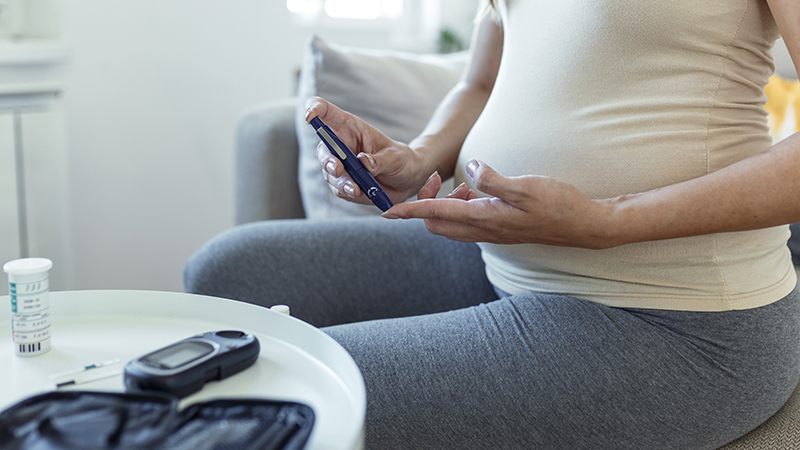6 Tips for Staying Healthy While Traveling
Wellness While You’re Away
Updated April 2023
Vacations can be a great way to de-stress and re-energize. Making time to explore new places, indulge in favorite pastimes, or simply lounge with friends and loved ones can be essential to your health and well-being.
Whether you’re traveling internationally or taking a road trip across the country, follow these six steps to stay healthy on your trip from Moira Morphew Nguyen, APRN, CNP, a travel medicine clinician at Northwestern Medicine:
We want to prevent disease and illness before they occur.— Moira Morphew Nguyen, APRN, CNP
1. Visit Your Clinician and Vaccinate Early
While you may not need to check with your physicians before a weekend trip to visit family, you should make an appointment to visit your primary care clinician before any long-term or long-distance travel. Your physician can make any necessary arrangements for prescription medication and provide a letter about your health needs if you need special accommodations or to seek care while you’re away.
For international travel, be sure to see a travel medicine specialist at least four to six weeks before you leave. “We want to prevent disease and illness before they occur,” says Nguyen. “It’s important for people to be prepared and feel confident about their health while traveling,” she says. Different countries may require you to get specific vaccines, and certain inoculations will take multiple doses or a few weeks to be effective. Share your itinerary with your physician so they can provide recommendations and advice on staying well while you’re out of town.
At Northwestern Medicine, travel medicine specialists can help you get ready for your international trip with an personalized approach. Your travel medicine clinician will make sure you have the vaccinations and health information you need.
Certain travel may cause young children to need their recommended vaccinations administered early, make sure you allow enough time for everyone in your family to be ready.
2. Pack and Prep Before You Leave
Once you’ve sorted out vaccines and any area-specific risks, you can put together a first aid kit. A basic travel pack will include:
- Adhesive bandages
- Antibiotic ointment
- Acetaminophen or ibuprofen
- Allergy medication
- Antacids for indigestion
- Loperamide for diarrhea
- Sunscreen (SPF 30 or higher)
- Small scissors
- Tweezers
- Hand sanitizer
Include any personal medications or first aid items such as inhalers or insulin. Carry prescriptions in their original, well-labeled container; if you travel by plane, store them in your carry-on in case your luggage is lost. Consider whether you should bring motion sickness or altitude sickness medications. If appropriate, pack insect repellant and hydrocortisone cream for bug bites, poison ivy or poison oak.
You may also wish to pack a written copy of your or your family’s medical history, including everyone’s name, address, blood type, health conditions, immunization records and contact information for your physician and pharmacist. Your physician can provide forms to help you collect this information.
You may also want to download or update an In Case of Emergency (ICE) app. ICE apps can provide first responders with emergency contact details. They can also store important information on you and your family’s medications, allergies or organ donor designations.
3. Avoid Motion Sickness and Ear Pain
Whether by plane, train or automobile, travel is often the most stressful part of vacation. If you or your loved one is prone to motion sickness, eat a light, relatively bland meal before travel, but avoid eating while on the move. When possible, make frequent stops for fresh air and focus your vision outside.
Pressure changes during air travel can cause ear pain, especially in children. Encourage your child to swallow and yawn often. If they’re old enough, offer gum for plane take-off and landing. Everyone should make an extra effort to stay hydrated when flying — adults should avoid alcohol— and move about the cabin as much as possible to avoid swelling in your arms and legs.
4. Adjust On Arrival
Travel in any form tends to be confining. The first thing you should do when you arrive at your destination is get up — stretch and move around to get your blood pumping. Be sure to keep drinking lots of water as you begin your vacation, but choose bottled or purified options if you’re unsure about safety of local tap water.
You should also do your best to adjust to local time. Spend the first few hours at your new destination outside in daylight. As hard as it may be, try not to nap when you arrive, and avoid coffee, tea and other caffeinated beverages. Steer clear of alcohol as well until you're feeling on track with local time. Melatonin can also help configure your internal clock, though you should ask your clinicians before taking any supplement.
5. Stay Safe in the Sun and on the Trails
Whatever your vacation entails — mountain hikes, beach relaxation or exploring a new city —make sure you’re keeping your skin safe so you don’t return with a sunburn or injury as a souvenir. Sun protection is essential no matter your itinerary: Apply sunscreen every two hours or more frequently if you’re sweating or swimming.
If you’re adventurous, you may be tempted to embark on an epic 15-mile hike or tackle that black diamond ski slope. Keep your ability and skill level in mind when picking activities on vacation to avoid injuries.
6. Be Aware of Your Environment
You’ve packed all the necessary items, sailed smoothly to your new location and even pulled off a local climb without pulling anything. But, what about all the little things that might have you wind up in a sick bed on vacation?
When you check in to where you’re staying, do a quick check for bedbugs. Keeping your luggage off the ground can also safeguard against critters that might sneak back home with you.
Depending on where your travel takes you, be careful about drinking tap water and eating raw fruits or vegetables. No matter where you are, prioritize good hand washing and beware of buffets — hot or cold, food that has been sitting out can easily go bad.
If you have dietary restrictions, do some research on friendly places to eat before you go. Find the best organic, gluten-free or vegan spots in advance to get the most out of your trip!






